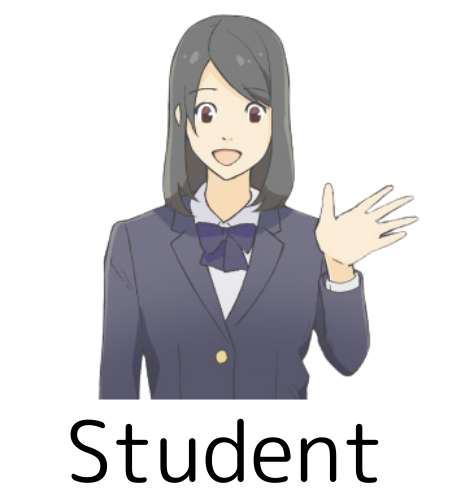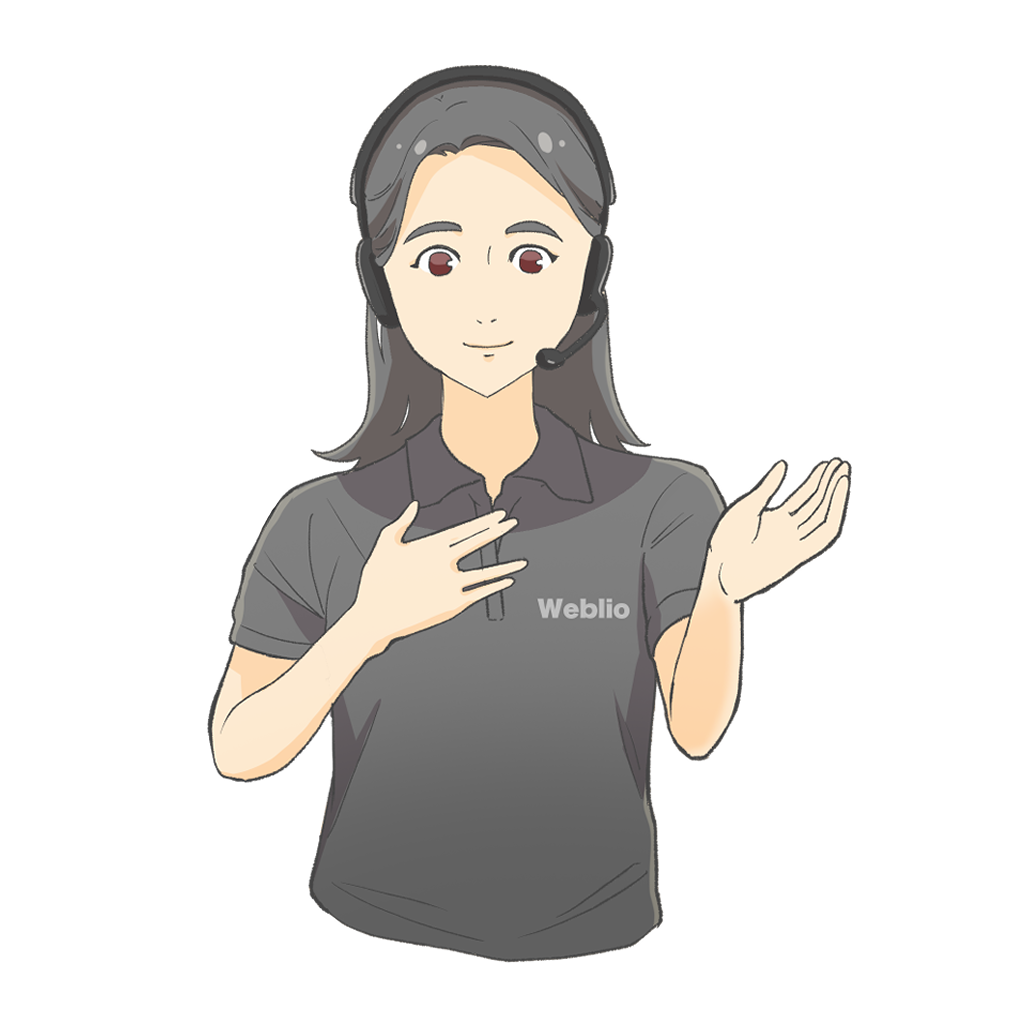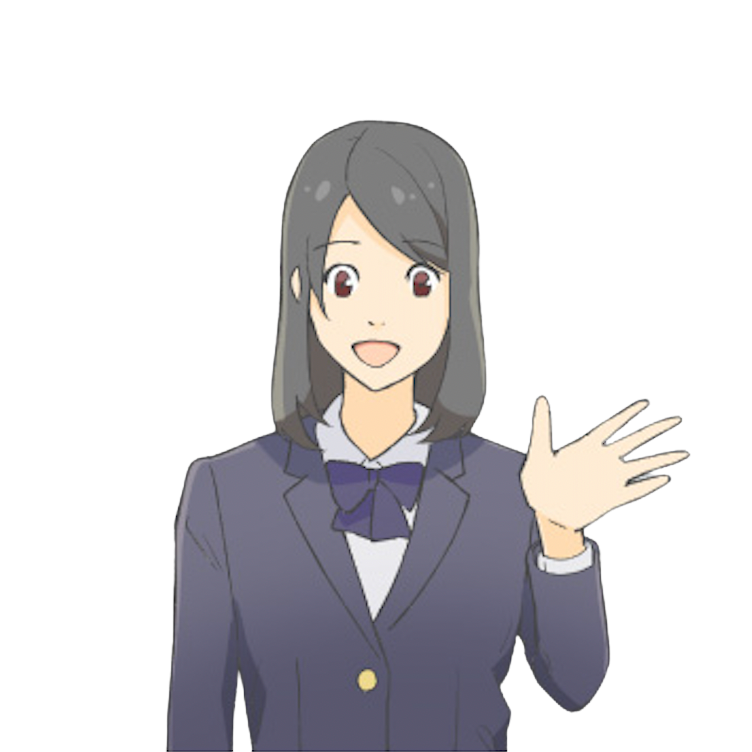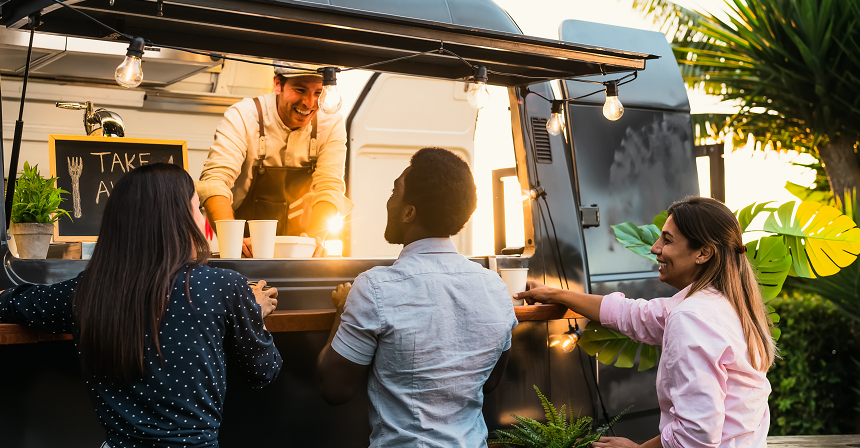Part A Advanced icebreak
Answer questions about things you have experienced recently.
Part A_1 Advanced icebreak
Let’s introduce ourselves to each other.
My name is ________. What is your name?
Part A_2 Advanced icebreak
I am ________. Nice to meet you.
Part A_3 Advanced icebreak
Nice to meet you too, ________. Let’s have advanced icebreaker questions!
Part A_4 Advanced icebreak
Please choose one topic below and I will ask you some questions.
Part A_5 Advanced icebreak
| 1. |
Excitement |
| 2. |
Sadness |
| 3. |
A “thank you” moment |
Part A_6 Advanced icebreak
Please answer each question about the topic you chose.
| 1. |
What did you/he/she/they do? |
| 2. |
Who did it? |
| 3. |
When was it? |
| 4. |
Where was it? |
| 5. |
Why did you/he/she/they do that? |
| 6. |
How was it? |
Part A_7 Advanced icebreak
Part A_8 Advanced icebreak
Awesome! Now, you will organize the points and tell me your story once more. If the question is not applicable, you may skip it.
Part A_9 Advanced icebreak
include these points: (What / Who / When / Where / Why / How)
Part A_10 Advanced icebreak
That was wonderful! Now, let us begin our lesson!
Part B Reading
Read sentences and check your pronunciation. Make sure you understand the content.
First, I will read the passage aloud. Please listen carefully.
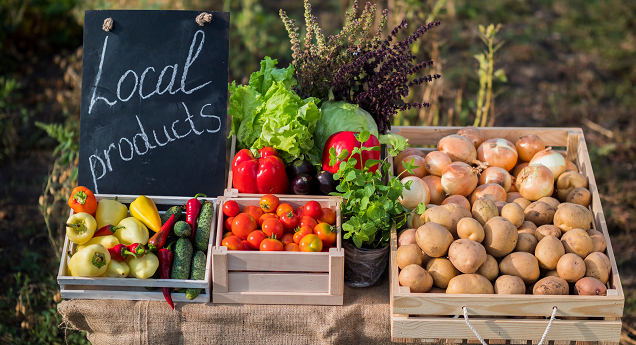
Fair trade is a system that helps farmers in developing countries by trading their products at fair prices.
In unfair trade, the buyers set the price, and the farmers do not get paid for the quality of their produce. Fair trade is important for farmers’ livelihoods because it can solve this problem.
By purchasing fair-trade coffee, tea, cacao, bananas, and clothing, we can help farmers.
【ヒント:日本語訳】
フェアトレードとは、開発途上国の農家が生産した農産物を公正な価格で取引することで、農家を支援する仕組みです。
不公正な取引では、買い手が価格を決め、農家は生産物の品質に見合った対価を得ることができません。フェアトレードは、この問題を解決することができるため、農家の暮らしにとって重要です。
フェアトレードのコーヒー、紅茶、カカオ、バナナ、衣類などを購入することで、私たちは農家の人たちを助けることができるのです。
Part B_3 Reading comprehension Q&A
Now, you will answer questions based on the passage. I will check if your sentences are complete and if your grammar is correct.
(Please send the correct answers to your student.)
Part B_4 Reading comprehension Q&A
| 1. |
What is the problem with unfair trade for farmers? |
Part B_5 Reading comprehension Q&A
Part B_6 Reading comprehension Q&A
| 2. |
What can we do to help farmers? |
Part B_7 Reading comprehension Q&A
Part B_8 Reading comprehension Q&A
You did a great job answering the questions! Now, let’s review your answers.
(Please review your student’s answers by sending the correct answers in complete sentences. After that, ask your student to read aloud his or her corrected answers.)
Part B_9 Reading comprehension Q&A
Now, you will read the passage below. I will check your pronunciation and intonation.
(Please send the mispronounced words and expressions that need improvements to your student.)

Fair trade is a system that helps farmers in developing countries by trading their products at fair prices.
In unfair trade, the buyers set the price, and the farmers do not get paid for the quality of their produce. Fair trade is important for farmers’ livelihoods because it can solve this problem.
By purchasing fair-trade coffee, tea, cacao, bananas, and clothing, we can help farmers.
That was great! Now, let’s review some words and expressions from part B_11.
(Please review the mispronounced words and expressions from part B_11.)
Part C Vocabulary
Let’s check the meaning and pronunciation of English words.
We’ll read aloud the words below. Please repeat after me. I will check your pronunciation.
(Please send the mispronounced words and expressions to your student.)

|
fair
feər
公正な
|
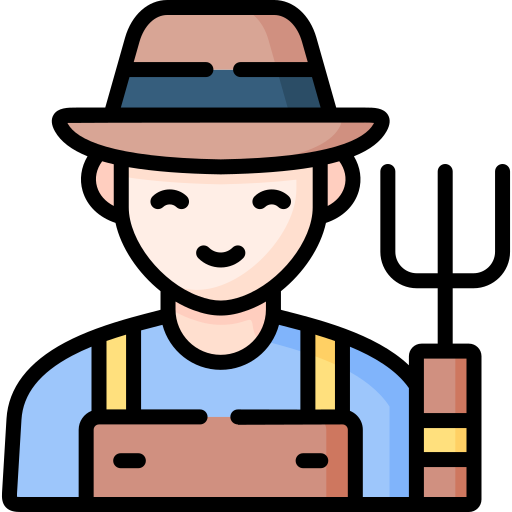
|
farmer
ˈfɑː.mər
農家
|
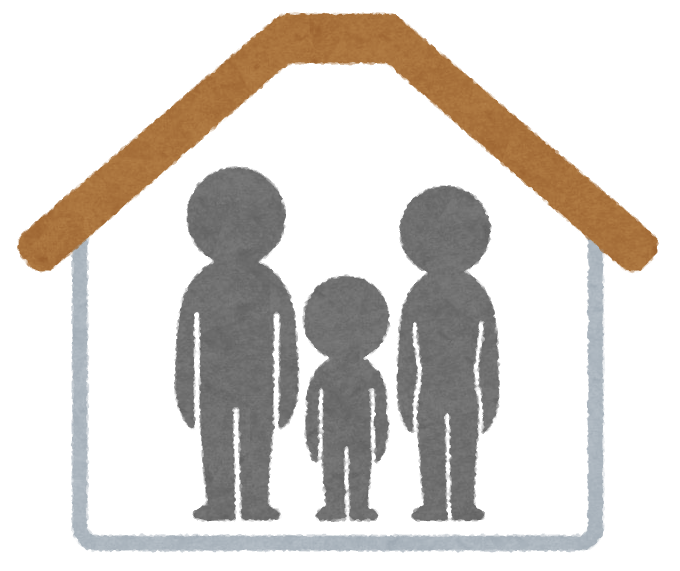
|
livelihood
lάɪvlih`ʊd
生活、暮らし
|

|
solve
sɒlv
解決する
|
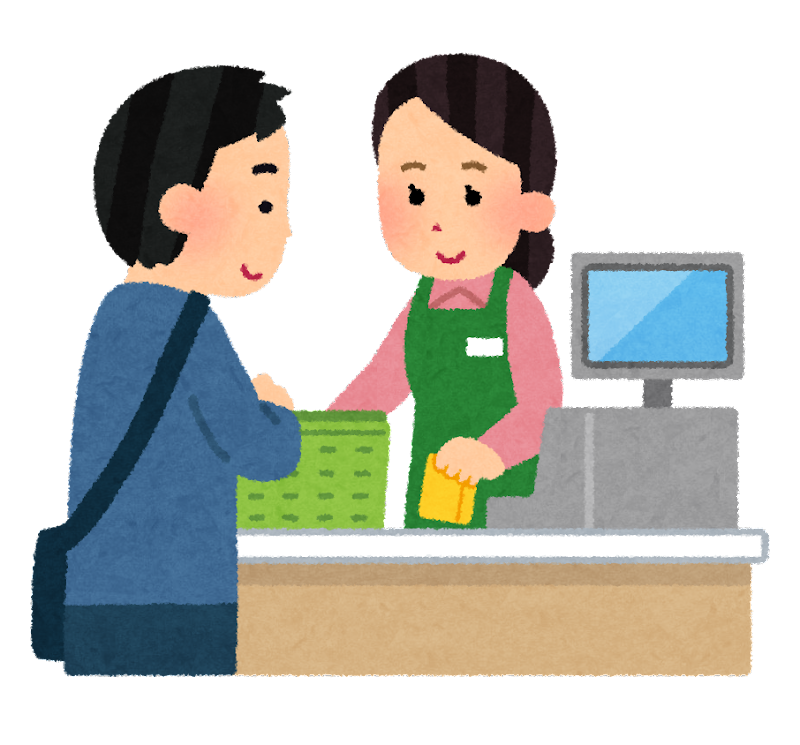
|
purchase
ˈpɜː.tʃəs
購入する
|
Now, let’s review some words from part C_2.
(Please review the mispronounced words and expressions from part C_2.)
Part D Q&A
Express your opinions, assumptions, and experiences.
I will ask you the questions below. I will check if your sentences are complete and if your grammar is correct.
(Please send the mispronounced words and expressions to your student.)
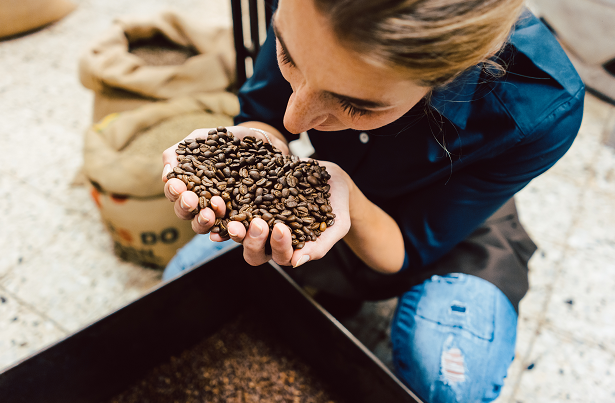
| 1. |
Compared to other countries, fair trade is not very popular in Japan. Do you think more fair-trade products should be available in Japan? Why or why not? |
| 2. |
If you found a fair trade product in a shop, would you buy it even if it was expensive? Why or why not? |
| 3. |
Have you ever had any experience of doing your best but not getting the results you wanted? How did you feel at the time?
|
(Like a farmer.)
You answered the questions very well! Now, let’s review your answers.
(Please review your student’s answers by sending the correct answers in complete sentences. After that, ask your student to read aloud his or her corrected answers.)
Part E Picture description
Describe the picture in complete sentences.
Part E_1 Picture description
Look at the picture below. Please describe it in as much detail as you can. I will check if your sentences are complete and if your grammar is correct.
Part E_2 Picture description
Part E_3 Picture description
You described the picture wonderfully! Now, let’s review your answers.
(Please review your student’s answers by sending the correct answers in complete sentences. After that, ask your student to read aloud his or her corrected answers.)
Part E_4 Picture description
Part F Role play
Talk about the following situations.
Let’s do a role play with the given situations. You should mention the items below during the conversation.
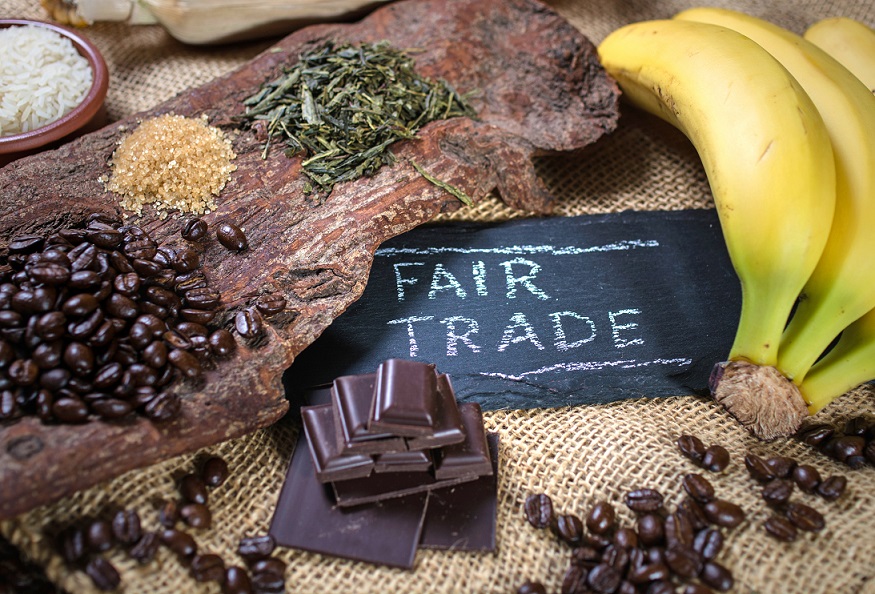
| Situation 1: |
You are shopping in a supermarket with your parents. You have found fair-trade products.
What do you like? What do you buy? How do you eat/cook the following fair-trade products?
(Your tutor will pretend to be your parent.)
|
| Fair-trade products: |
– coffee
– black tea
– chocolate
– bananas
– honey
– sugar
– soybeans, sesame seeds
– spices and herbs
– nuts
|
ヒント:
black tea 紅茶 soybeans 大豆 sesame seeds ごま
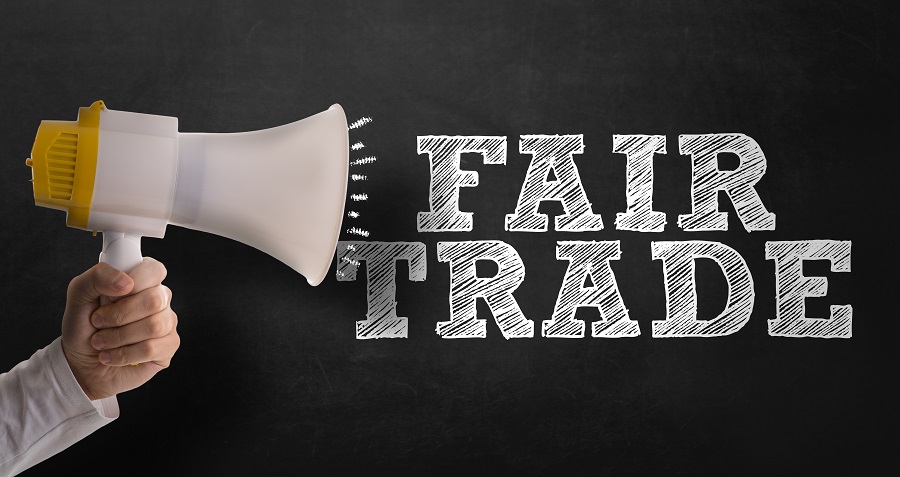
| Situation 2: |
You are going to give a presentation on fair trade in class. Present it to your classmates.
(Your tutor will pretend to be one of your classmates.)
|
| Items to mention: |
– what fair trade is
– why it is important for farmers
– what we can do to help farmers
|
Your answers were fantastic! Now, let’s review your answers.
(Please review your student’s answers by sending the correct answers in complete sentences. After that, ask your student to read aloud his or her corrected answers.)
Part G Challenge part
Answer more challenging questions freely.
I will ask you the questions below. I will check if your sentences are complete and if your grammar is correct.
| Tell me about your grocery shopping. |
| 1. |
Do you go grocery shopping? What kind of food do you usually buy?
|
| 2. |
What do you care about most when buying food?
|
ヒント:grocery 食料品
| Please tell me about your daily meals.
|
| 1. |
What kind of meal do you usually eat?
|
| 2. |
Do you cook?
If yes, what do you usually cook? How do you cook it?
If no, who usually cooks for you? What is your favorite dish?
|
Part H Tips for future practice
Give tips for a practice after the lesson.
Part H_1 Tips for future practice
Please keep these things in mind after the lesson and practice!
Part H_2 Tips for future practice
1日の終わりに今日の出来事をつぶやいてみよう。
たくさん話すためには?
■ いつ、誰とどこで何をしたのか伝えよう。
■ それをしてどう感じたか、なんでそう感じたのかも伝えるよう意識しよう。
例)
I took an online lesson with Ellen at my house today.
(what/who/where/when)
It was fun to talk with Ellen because her hobby was the same as mine.
(how/why)

